Question And Answer
Publications
Articles, publications, books, tools and multimedia features from the U.S. Institute of Peace provide the latest news, analysis, research findings, practitioner guides and reports, all related to the conflict zones and issues that are at the center of the Institute’s work to prevent and reduce violent conflict.
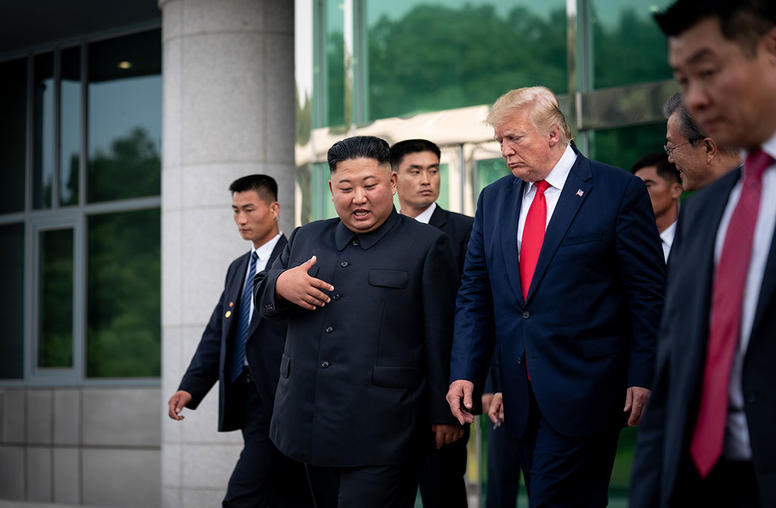
What’s Next with North Korea?
It’s been over a month since President Trump became the first sitting American president to set foot in North Korea. After months of stalled talks, this third Trump-Kim meeting was greeted with optimism, as the two leaders agreed to resume working-level negotiations. Not only have those talks not started up again, but North Korea has since conducted several missile tests in what many experts believe is a bid to maintain pressure on Washington and Seoul.
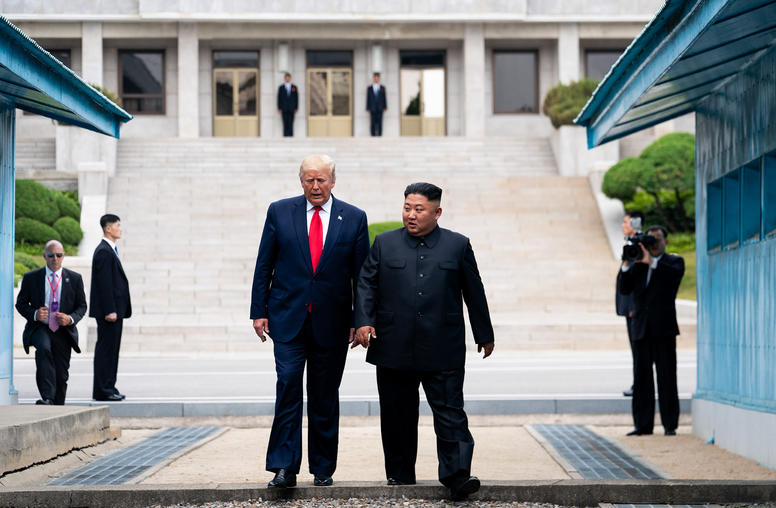
The North Korea Show: More Than a Photo Op
News coverage of President Trump’s meeting with North Korean leader Kim Jong Un has focused significantly on the optics of their televised encounter at the demarcation line separating North and South Korea. But according to two senior U.S. experts—Ambassador Joseph Yun, the former U.S. special representative for North Korea policy, and Frank Aum, who served as advisor for North Korea to four U.S. defense secretaries—the announced plan for a resumption of working-level talks is potentially significant.

Frank Aum on North Korea Nuclear Negotiations
A year after the first summit between President Trump and Kim Jong Un, “both sides are very much committed to diplomacy and trying to reach an agreement,” says Frank Aum. Despite the stalled talks, Aum says that Chinese President Xi’s visit to North Korea will likely encourage Kim to continue along the path of diplomacy.
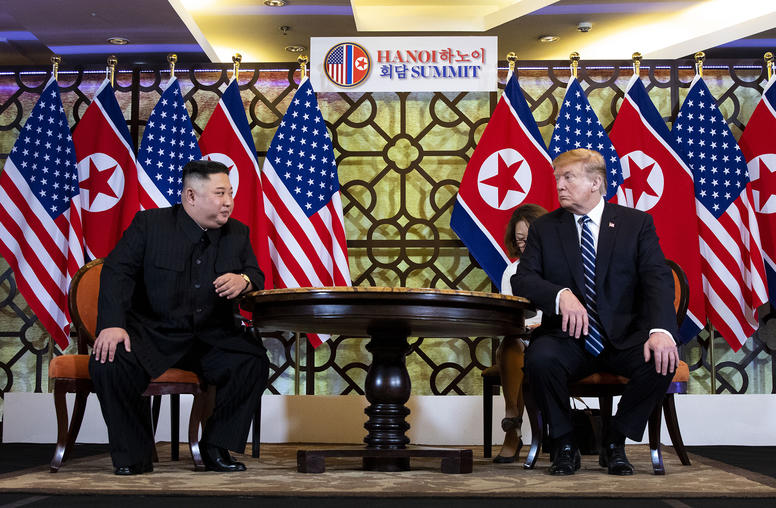
U.S.-North Korea Negotiations: What Happened in Hanoi?
President Trump and North Korean leader Kim Jong Un unexpectedly cut short their second summit Thursday after failing to come to an agreement to dismantle Pyongyang’s nuclear weapons and provide sanctions relief. USIP’s Ambassador Joseph Yun and Frank Aum explain what happened in Hanoi and what comes next for U.S.-North Korea nuclear diplomacy.
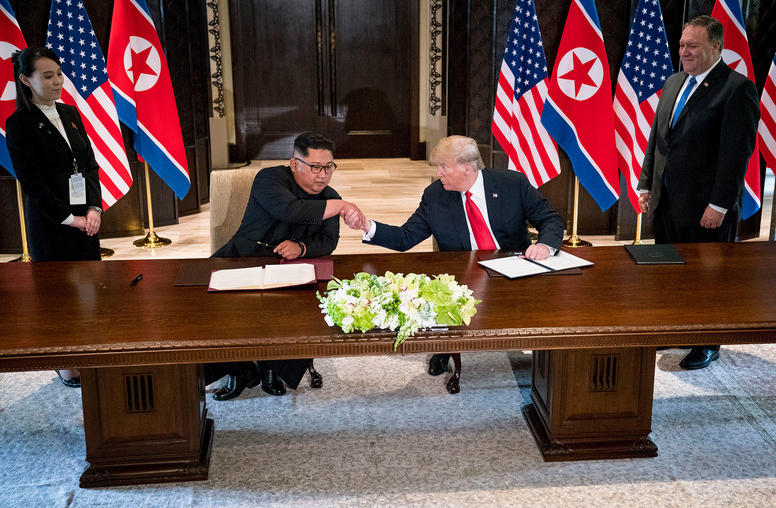
Have the Stars Lined Up on North Korea?
Tomorrow’s summit between President Trump and Chairman Kim Jong Un represents the best opportunity for peace in the last 20 years. In 2000, the United States came—as former senior Clinton administration official Wendy Sherman described—“tantalizingly close” to achieving an agreement that would halt North Korea’s production, deployment, and testing of long-range missiles. And this was in addition to the 1994 Agreed Framework deal, which froze North Korea’s nuclear facility at Yongbyon. What is different this time around?
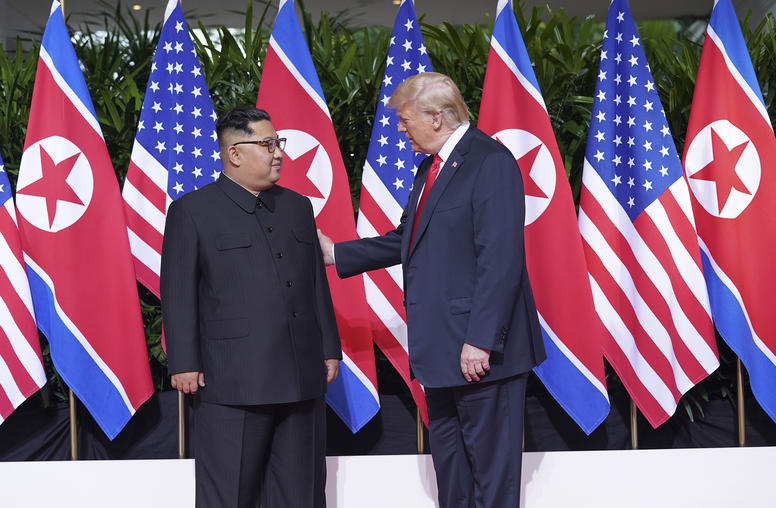
On to Vietnam: What Will Happen at the Second Trump-Kim Summit?
At the State of the Union address this week, President Trump announced that he will again meet with North Korean leader Kim Jong Un at the end of February in Vietnam for their second face-to-face negotiations. The president’s announcement follows recent comments from U.S. Special Representative for North Korea Stephen Biegun indicating that the U.S. is prepared to negotiate on both denuclearization and peace simultaneously—an approach that the Trump and former administrations previously eschewed. USIP’s North Korea and China experts examine the potential shift in U.S. policy and what concerns key regional players have over the next summit.

Frank Aum on North Korea Negotiations
Since the Singapore Summit, Washington and Pyongyang have been mired in a stalemate over the sequencing of an end of war declaration and North Korea’s disarmament. Yet, even after the cancellation of Secretary Pompeo’s visit, USIP’s Frank Aum says talks will likely continue, as both sides are invested in a successful outcome.
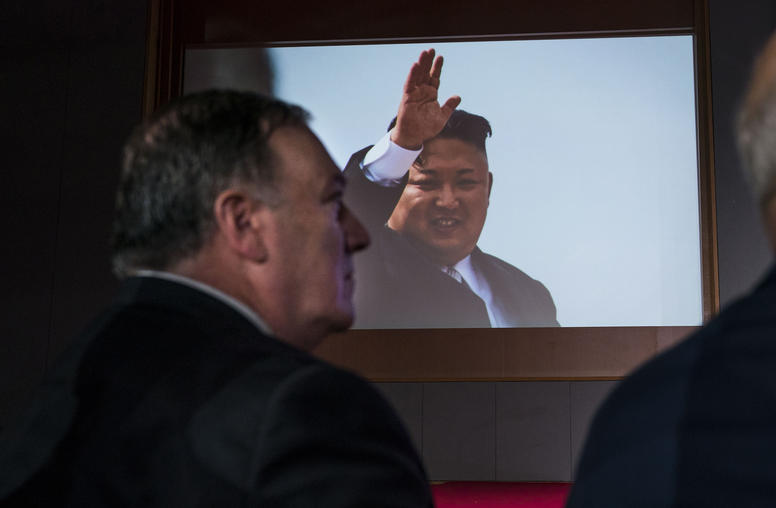
Can North Korea Negotiations Get Back on Track?
Frank Aum looks at the ramifications of the cancellation of Secretary of State Pompeo's trip to North Korea and what it could signal about U.S. policy moving forward.
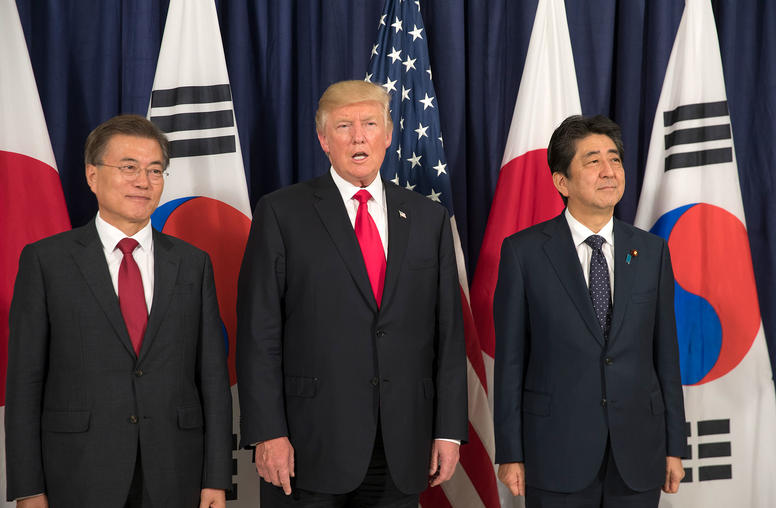
What Does the Singapore Summit Mean for South Korea, China and Japan?
The June 12 summit in Singapore between President Donald Trump and North Korean leader Kim Jong Un was a watershed moment in relations between Washington and Pyongyang. But, the more immediate and profound impact will be felt in East Asia, where North Korea’s nuclear program has threatened regional stability and security. While South Korea, China and Japan have different—sometimes starkly so—interests and positions vis-à-vis North Korea, all three of the Asian powers will be important players in efforts to implement the pledges made in Singapore. USIP’s Ambassador Joseph Yun, Jennifer Staats and Frank Aum discuss the implications for Seoul, Beijing and Tokyo.
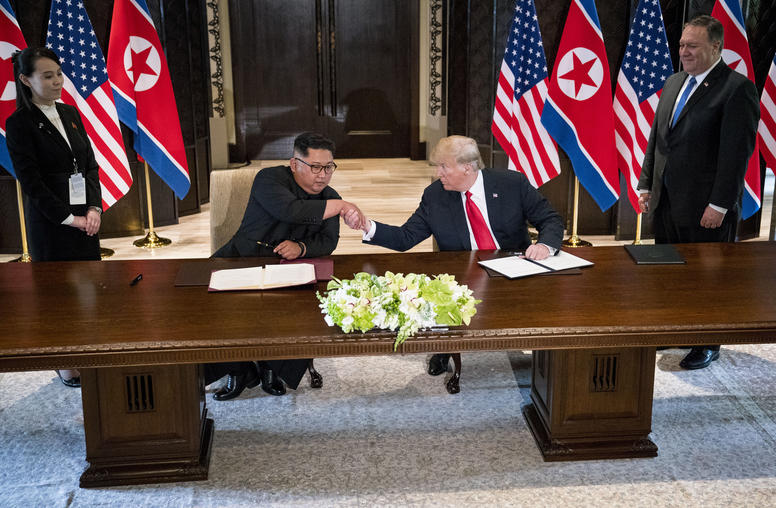
Are the Korean Peninsula and the World Safer After Singapore? (Video)
Following the June 12 summit in Singapore between U.S. President Donald Trump and North Korea leader Kim Jong Un, the U.S. Institute of Peace asked North Korea experts Stephen Rademaker and Frank Aum whether the world is safer because of the summit and what differences—if any—there are between the pledges made in Singapore and previous agreements.